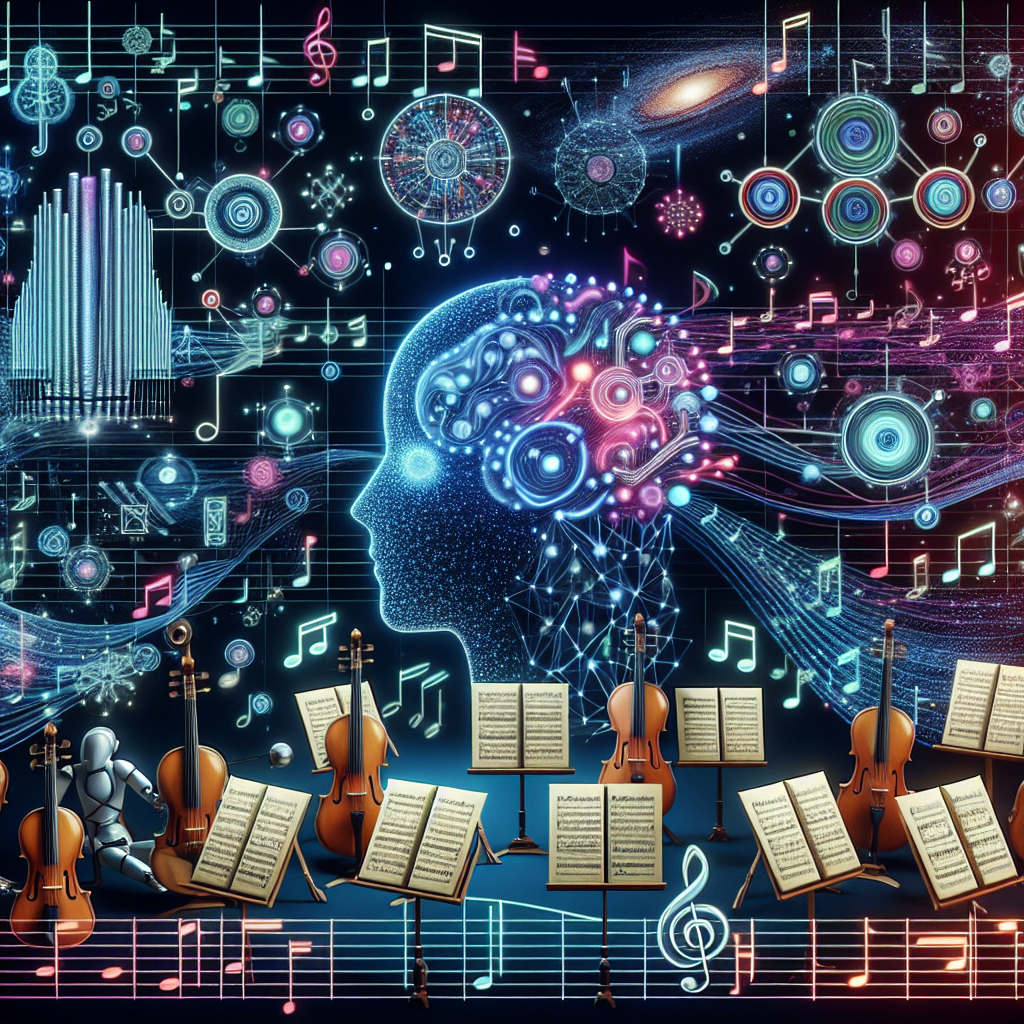In recent years, artificial intelligence (AI) has made significant advancements in various industries, including music composition. AI platforms are now revolutionizing the way music is created, allowing musicians and composers to explore new creative possibilities and push the boundaries of traditional music composition. In this article, we will explore how AI platforms are changing the landscape of music composition and the potential impact they could have on the music industry.
AI platforms are software programs designed to mimic human intelligence and perform tasks that typically require human cognitive functions, such as learning, reasoning, and problem-solving. In the context of music composition, AI platforms can analyze existing musical works, identify patterns and trends, and generate new compositions based on this analysis. This process, known as generative music, allows musicians and composers to quickly and easily create new music that is inspired by the work of others.
One of the key advantages of using AI platforms for music composition is the speed and efficiency with which new music can be created. Traditional music composition can be a time-consuming and labor-intensive process, requiring composers to experiment with different melodies, harmonies, and rhythms until they find the right combination. With AI platforms, composers can input a few parameters, such as genre, mood, and tempo, and the platform will generate a composition that meets these criteria in a matter of seconds.
Another benefit of using AI platforms for music composition is the ability to explore new creative possibilities. AI platforms can analyze vast amounts of data from a wide range of musical genres and styles, allowing composers to experiment with new sounds and techniques that they may not have considered otherwise. This can lead to the creation of music that is innovative and groundbreaking, pushing the boundaries of traditional music composition.
AI platforms can also help composers overcome creative blocks and inspire new ideas. By analyzing existing musical works and identifying patterns and trends, AI platforms can suggest new directions for composers to explore, sparking their creativity and helping them break out of their creative rut. This can be particularly valuable for composers who are working on a tight deadline or struggling to find inspiration.
In addition to helping composers create new music, AI platforms can also assist with the production and arrangement of music. AI platforms can analyze the structure and arrangement of a composition, identify opportunities for improvement, and suggest changes that will enhance the overall quality of the music. This can save composers time and effort in the production process, allowing them to focus on the creative aspects of music composition.
Overall, AI platforms are revolutionizing music composition by providing composers with new tools and techniques to create music that is innovative, creative, and inspiring. As AI technology continues to advance, we can expect to see even more groundbreaking developments in music composition that will shape the future of the music industry.
FAQs:
Q: Can AI platforms replace human composers?
A: While AI platforms can assist with music composition, they are not intended to replace human composers. AI platforms are tools that can help composers explore new creative possibilities and overcome creative blocks, but ultimately, the creative vision and expression of a human composer are irreplaceable.
Q: What are some examples of AI platforms for music composition?
A: Some examples of AI platforms for music composition include Amper Music, AIVA, and OpenAI’s MuseNet. These platforms use AI technology to analyze existing musical works, generate new compositions, and assist with the production and arrangement of music.
Q: How do AI platforms learn to compose music?
A: AI platforms learn to compose music by analyzing vast amounts of data from a wide range of musical genres and styles. They use machine learning algorithms to identify patterns and trends in the data, which they then use to generate new compositions based on the input parameters provided by the composer.
Q: Are there any ethical concerns with using AI platforms for music composition?
A: There are some ethical concerns associated with using AI platforms for music composition, such as issues of copyright infringement and intellectual property rights. Composers should be aware of these concerns and ensure that they are using AI platforms in a responsible and ethical manner.
In conclusion, AI platforms are revolutionizing music composition by providing composers with new tools and techniques to create music that is innovative, creative, and inspiring. As AI technology continues to advance, we can expect to see even more groundbreaking developments in music composition that will shape the future of the music industry.

